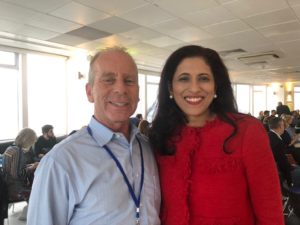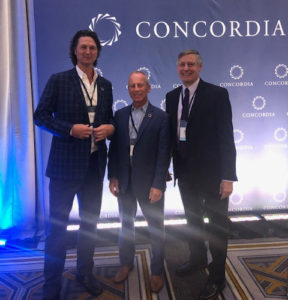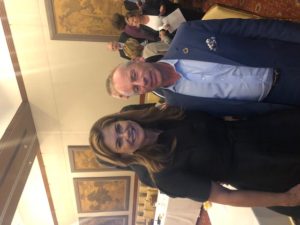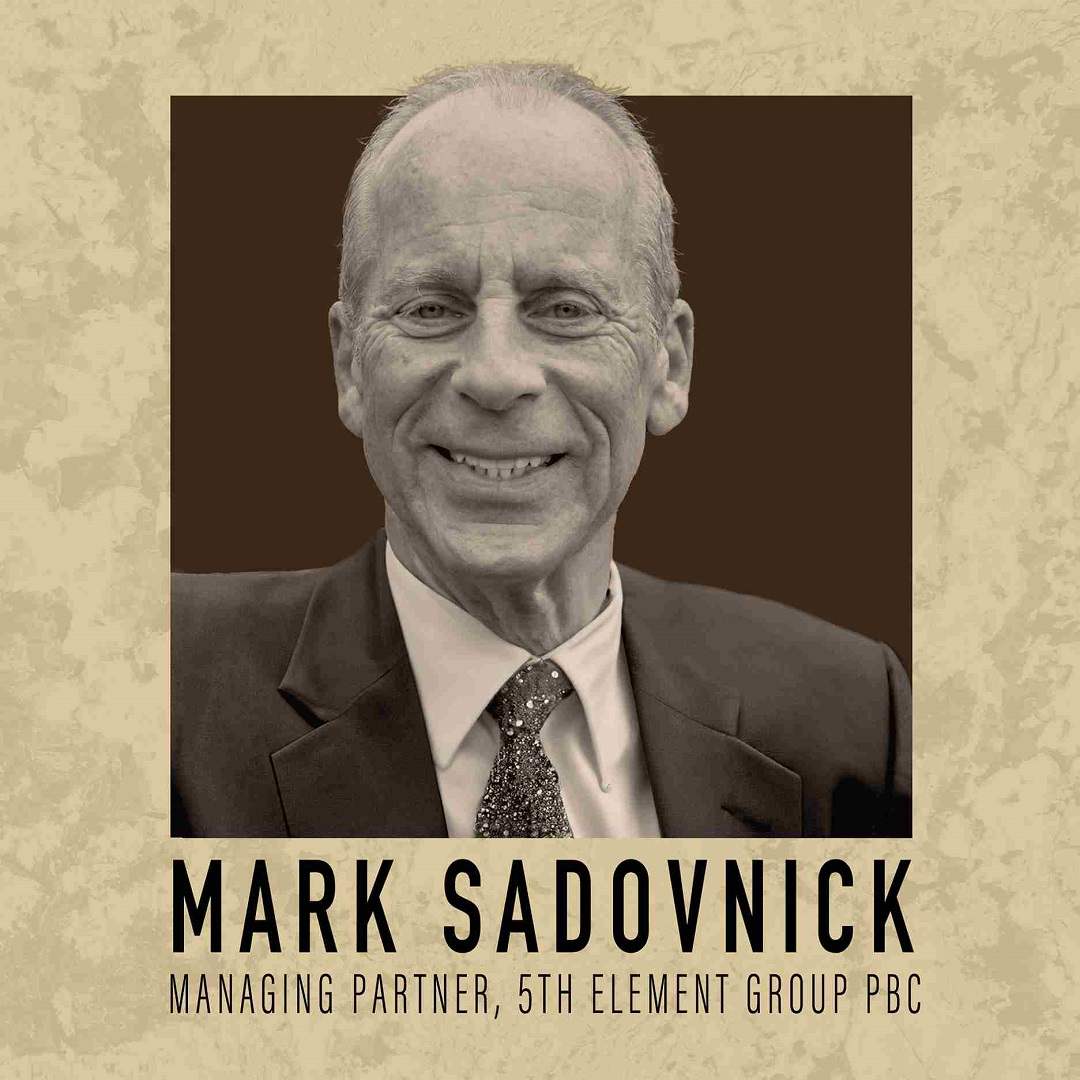CATEGORIES
People We Admire | Relationship Building | Social ImpactOverview:
- Mark Sadovnick comes from a family of immigrants, a reality that made him value and appreciate diversity.
- Mark believes that diversity creates an amalgamation of ideas and it helps the team build up a successful foundation of trust and appreciation with each other. This connection, of humans being simply humans to each other, becomes meaningful in creating an environment where a person does not only feel that they belong in the company, but also feels that they are contributing something worthwhile.
- Mark further elaborates how companies advocating for a cause attracts other talents, which eventually expands businesses. He states that he aims to help companies realize that by creating positive social, economic, and environmental impacts, they become more connected to talents that share the same passion and advocacy.
1. What was your childhood experience and how did it shape you into the person that you are today?
I’m originally from Montreal, Canada, which is a pretty diverse international city. I grew up in a small family but amongst a lot of diversity. My grandparents, mom, and aunt are from Kiev, Ukraine and they came to Montreal. My dad is from Montreal, but his family is from Poland. We loved trying different foods, hanging out in different places, and talking about the different people we knew from different places. These experiences and immersions were impactful from an early age, as they taught me how to work well in a team. When I started participating in team sports, my learnings from my elders helped me during travels to tournaments and eventually in winning our events. I was always taught that if you try your very best to be the best, you will have the most fun and you’ll be better for it.
Aside from my experiences, my grandfather had a big influence on me. I remember that he used to take me for walks in the park when I was about five years old. Those strolls were one of the most peaceful, happy times I’ve ever had. Once, I asked him how he knew all those people that he talked to during our walks. He looked at me and said, “I don’t know any of them.” He further elaborated that he would just smile at people and the person would smile right back and that’s when they started talking to him. As a five year old it was so impactful to see how a smile was so meaningful for other people. So yes, I can share a lot of other experiences, but most of the impactful experiences I have had are people being human with each other.

2. What does your typical day look like?
I would say that there is no “typical” day as each day is different—and that’s what’s fun. 40% of the time I’m home in a place called Hermosa Beach, Los Angeles. I’m grateful for that, as the first thing I see when I look outside is the ocean. I start my day off peacefully and then move into the chaos after that.
I drink my cup of coffee in the morning and very often speak to corporate leaders from foundations, nonprofits, and organizations. Our firm works with leaders around the world on the social, economic, and environmental impacts they want to make. We always try to explain how making a positive impact is good for business and attracts the best talent.
I also take regular breaks during the day, so it’s not just sitting at the computer. My day is usually spent engaging with people about what turns them on and how to help them be both economically successful and impact their family, community, and world at the same time. It energizes me to talk to people with different perspectives, ideas, accents and looks, etc. Imagine how terrible it would be if everybody was exactly the same.
My day wasn’t always this way but now it is. When you love what you do, you’ll never work a day in your life.
3. What are the key characteristics that you think make a successful person and hence, what are the things that you look for when recruiting individuals?
One of the things we focus on is “right fit, culture add.” The “right fit” is often misinterpreted as being exactly the same as the people that are hiring you, so it fits. But that is incorrect. The right fit is someone who adds to the culture and, as a result, brings new and different ideas to the table. It is somebody who can engage different ideas in a positive way and has the ability to trust and be trusted on a team, to come to the best path to take, in whatever decisions they make. You can always find people that are qualified but the key characteristic is do they have the experiences and accomplishments that show they can work in a team that trusts each other?
There’s an interview I did with a national hockey league executive. He said that every year, “our goal is to win the championship and in order to win seasons, everybody should be engaged. It’s not just the players you see on the field over the ice; it’s the secretary in the office at the arena, it’s the usher in the stadium, and it’s the person that cleans the field”. It’s just like the janitor at NASA who truly believed he helped them go to the moon. And he did. It wasn’t just by cleaning the garbage cans; but his attitude. He was willing to do whatever it took.
So trust becomes a big characteristic and you can’t find that in one conversation but you can find it in a number of conversations where they explain their experiences and how they did it. How they articulate that is not about “I” but it also involves what the team did together to get to a place.
Additionally, we look for people who have shown a propensity to make a difference and a propensity to care. People who show that they really care about the financial, physical and mental well-being of the people in the company that they work with.

4. Can you tell us more about the mentors that have influenced you and shaped your career?
When I was 19, I met a guy from Egypt. He wasn’t famous and wasn’t from a family that had lots of money. He was just a good person who wrote a letter to Golda Meir, the first female Prime Minister of Israel. The letter addresses the fact that he thought all Jewish people were like animals before he read her book and somehow she responded to him. They started communicating and he started an Arab Israeli Peace Club. He went to Lebanon and grew the group while getting death threats from both sides. Then he came to Montreal and I got invited to see him. He must have been in his 20s.
I asked myself, how can a regular guy get to this point and meet the prime minister of another country? Specifically Egypt and Israel, those were archrivals. It was very inspirational. He was the first Arab born outside of Israel that was admitted to a Hebrew university in Israel, specifically by Golda Meir. It was amazing that this happened and what he had to go through in college was a chore on its own. He had to learn Hebrew, he had to be secure, and he had to keep this group going as he wanted to make something happen there. It was hugely inspirational that one person can make a difference.
5. Do you have any aspirations for yourself in the upcoming years?
I’ve been involved on the board of an organization called Million Peacemakers. They have a signature program called Nonflict. It’s a workshop on how to look at conflict differently—as different ideas. Conflict is a process that shows how active listening is critical.
They have formed a partnership with a nonprofit in London called Aegis Trust, who are experts on the topic of genocides, both in trying to prevent them as well as supporting people that have gone through them and have been active in Rwanda.
The amazing thing that Aegis Trust alongside Rwandans has done over the years is develop an educational process, which, as an oversimplification, is a process of forgiveness, understanding, and listening. It isn’t easy but they’ve come back as a nation. Some of the survivors and perpetrators live in the same town and have to see each other.
We are working on a joint venture now called the Global Partnership for Peace and Humanity. Its aim is to use nonflict processes and educational healing perspectives to prevent genocides and continue supporting people who have gone through them. There’s going to be a minimum of a million young people being trained over the next six months on Nonflict. This will be virtual and in-person. The overall goal is to train 250 million young people.
I have always believed that by learning that you can have different ideas on one single topic, and by understanding the perspectives of others, you can try to create a compromise.
I also aspire to bring kids from around the world together to focus on what’s their favorite foods, sports, books, movies etc. Get to know, hug, and talk to each other. Just so that they are able to experience diversity in its true sense and disclaim the negativity they see on social media.

6. What advice would you give to people who are seeking to grow in their career?
You have to have a thick skin and know that not everybody’s going to care about you. You can have negative influences that result in positive outcomes. You can take the opportunity to learn how you shouldn’t be and take what can work. Remember, it doesn’t always work right away, so you have to have faith and integrity about how you want to pursue your career.
The best way to do that is to be interested in other people. We’re all humans, and it feels good to know that someone really cares. If it’s all about you, it’s not going to work. Try to collaborate as much as possible.
Conclusion:
Mark shares his passion for advocating how diversity helps in businesses, executive hiring, and even conflict management. He shares that by simply seeing the perspectives of others and how their ideas differ, we can learn to forgive, listen, and understand. He also advocates that by simply being nice and kind, we can develop meaningful relationships and connections, which leads to collaboration and the creation of efforts that make this world a better place to live in.


